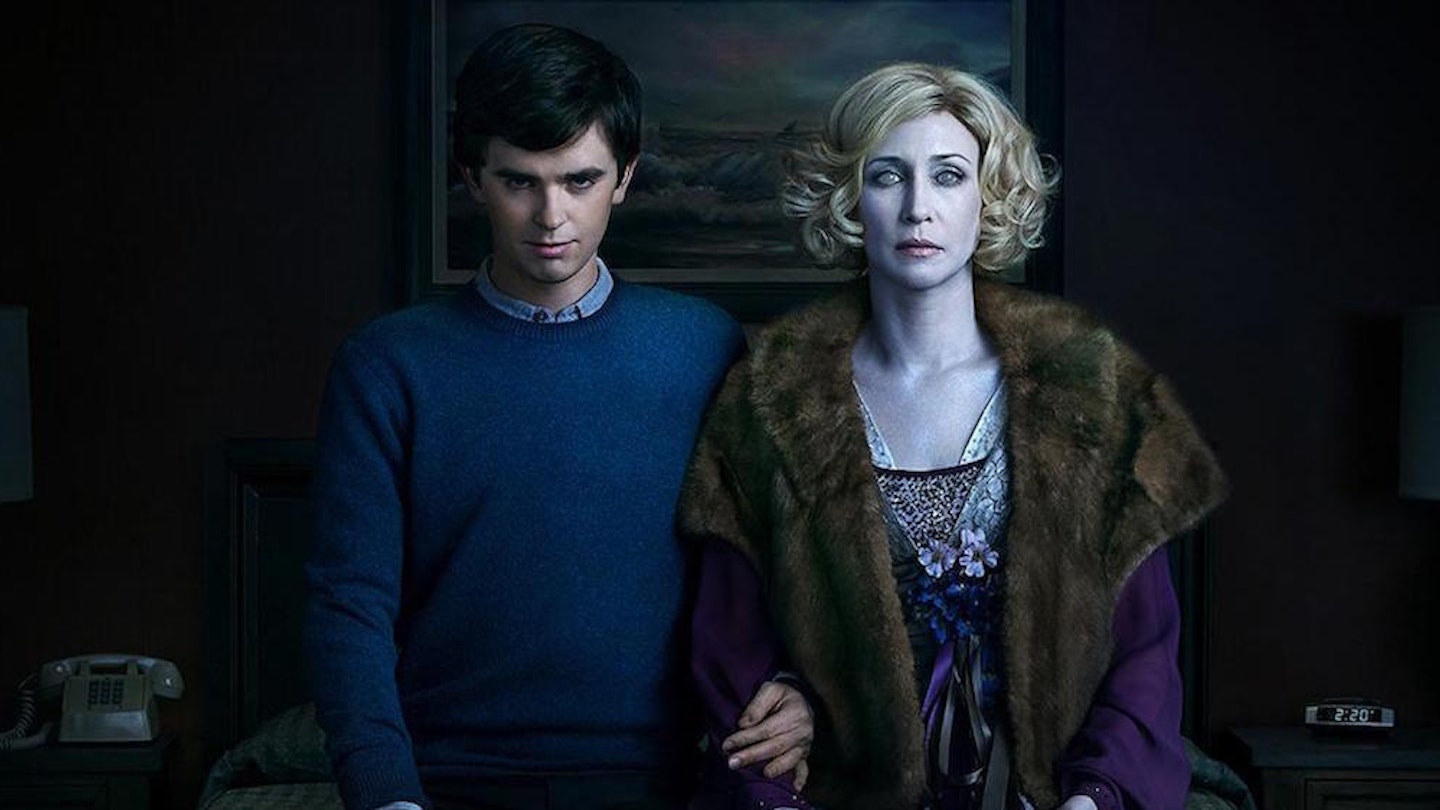Bates Motel, in the beginning, was met with such skepticism that you could cut it with a knife. A really sharp knife. The kind of knife you'd use to hack someone to death in the shower — not to put too fine a point on it.
Skepticism is a natural response when you're taking on the world of Alfred Hitchcock's Psycho. It's certainly what greeted 1983's Psycho II, until many critics recognized the strengths of the Richard Franklin-directed thriller. The same couldn't be said for 1986's Psycho III (directed by Norman Bates himself, Anthony Perkins) or Showtime's 1990 TV movie Psycho IV: The Beginning. The people who weren't skeptical, however, were writers Anthony Cipriano and, in paricular, Carlton Cuse and Kerry Ehrin, who embraced the characters of Norman Bates and his mother, Norma, as well as the creative challenge of charting their journey towards Psycho. With Vera Farmiga and Freddie Highmore cast as dysfunctional mother and son, much of their trepidation over taking on this concept vanished.
And now the show, in its fifth season, is coming to an end, moving ever closer to the Hitchcock classic and having the "audacity" to bring the character of Marion Crane (Janet Leigh in the film, Rihanna on the series) into the mix earlier than she had been previously.
In the following exclusive interview, Ehrin looks back at the journey of both Bates Motel and Norman Bates himself. Beware of spoilers!
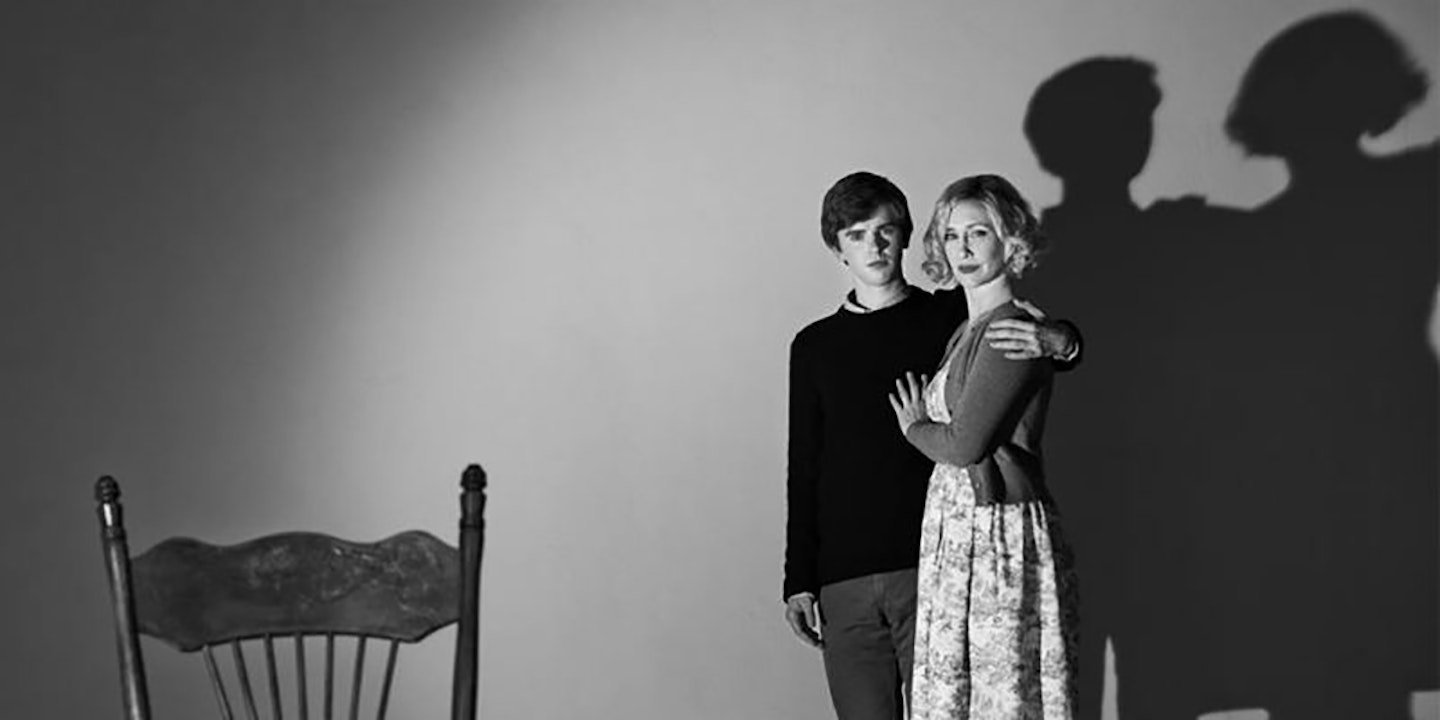
Where did the notion of taking Psycho and turning it into a television series come from?
This was first pitched to me at Universal, where I had, and still do have, an overall deal, and Russell Rothberg brought it up in a general meeting. Universal had the rights to Psycho, obviously; I think there was a script that had existed that Anthony Cipriano had written, and they wanted to develop it. I don’t know exactly Carlton Cuse’s route of how he came into it, but obviously he is a great get. He had just come off Lost, and they put us together. That's how it started. Carlton and I, really from our first meeting, had a very similar idea of what the show should be, or how it could work as a show. I very much did not want to do “Murder of the Week;" I didn’t want to focus on the ugliness of the story.
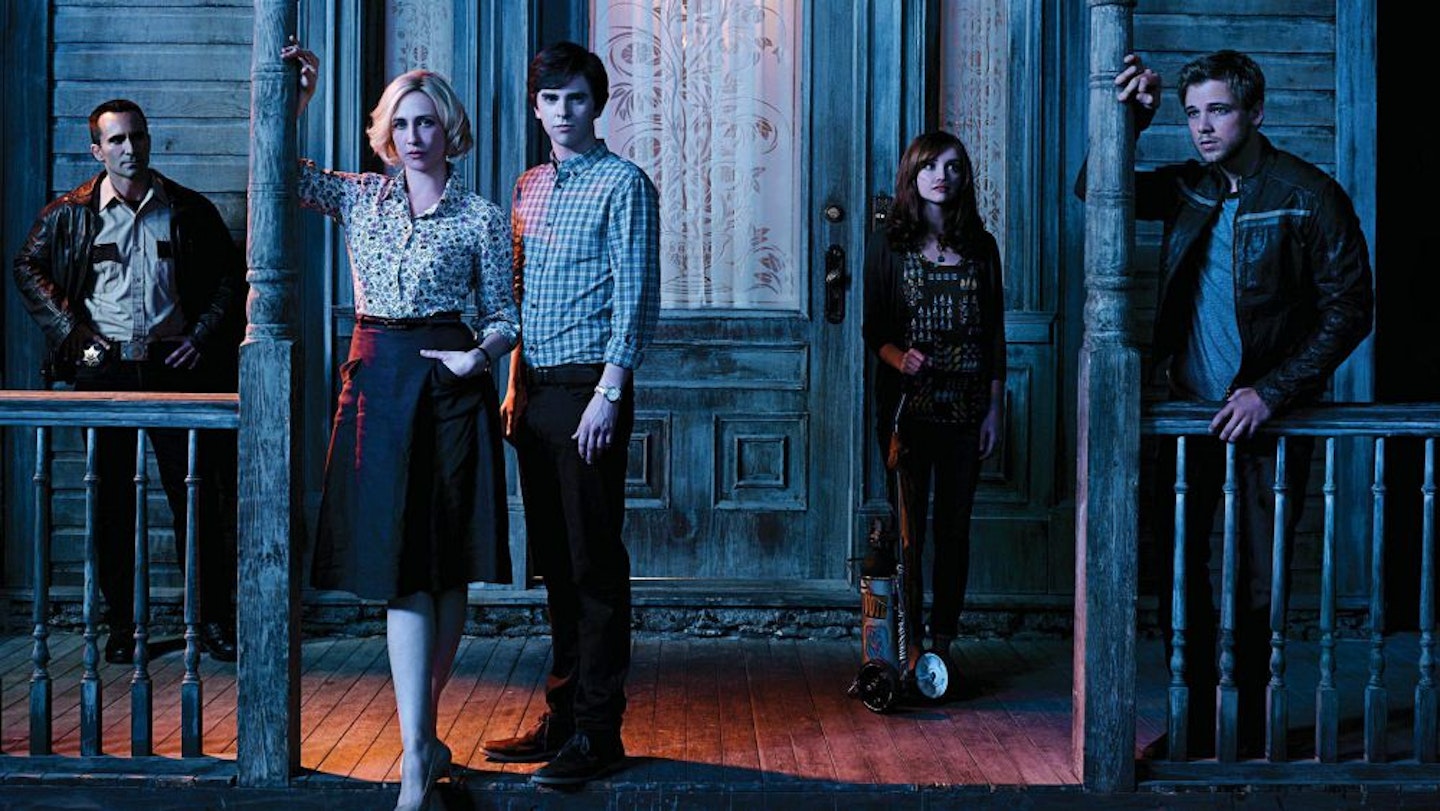
What personally attracted me, and I think Carlton as well, is telling a story about a mother and a son that was complex. I had grown up in a certain amount of dysfunction — I mean, I love my family and everything, but it was emotionally chaotic, and the idea of codependence was very interesting to me, because it gets a bad rap! As it should. I mean, it’s not a healthy way to live, but there is a certain heroin-like aspect of it, where it’s larger than life, and the bonds that you make in codependence have a fantastic beauty and romance to them, because you so need that person. That was a story I had not seen told, and I was very interested in telling that story.
Was it tough to take what we knew of Norman Bates and invent this whole back story that in certain ways would dovetail with what had been established?
Honestly, that was not the hard part to me, because I kind of live in that world of characters and psychology and what makes people tick. It was like a great algebra equation! It was more like, what psychology and what combination of psychologies between him and his mother, combined with experiences in his life, gets you the sum of Norman Bates from Psycho?
It was really more fun, I would say, than hard. I think the hard part of the show has always been that it's about two people, and to get fifty episodes out of a show about two people, you have to have story engines. Creating the story engines that were the crime stories was the more challenging part. The writing about just the crazy, dark but beautiful relationship between these two people was always honey to me. That was the great, easy, luscious part of it.
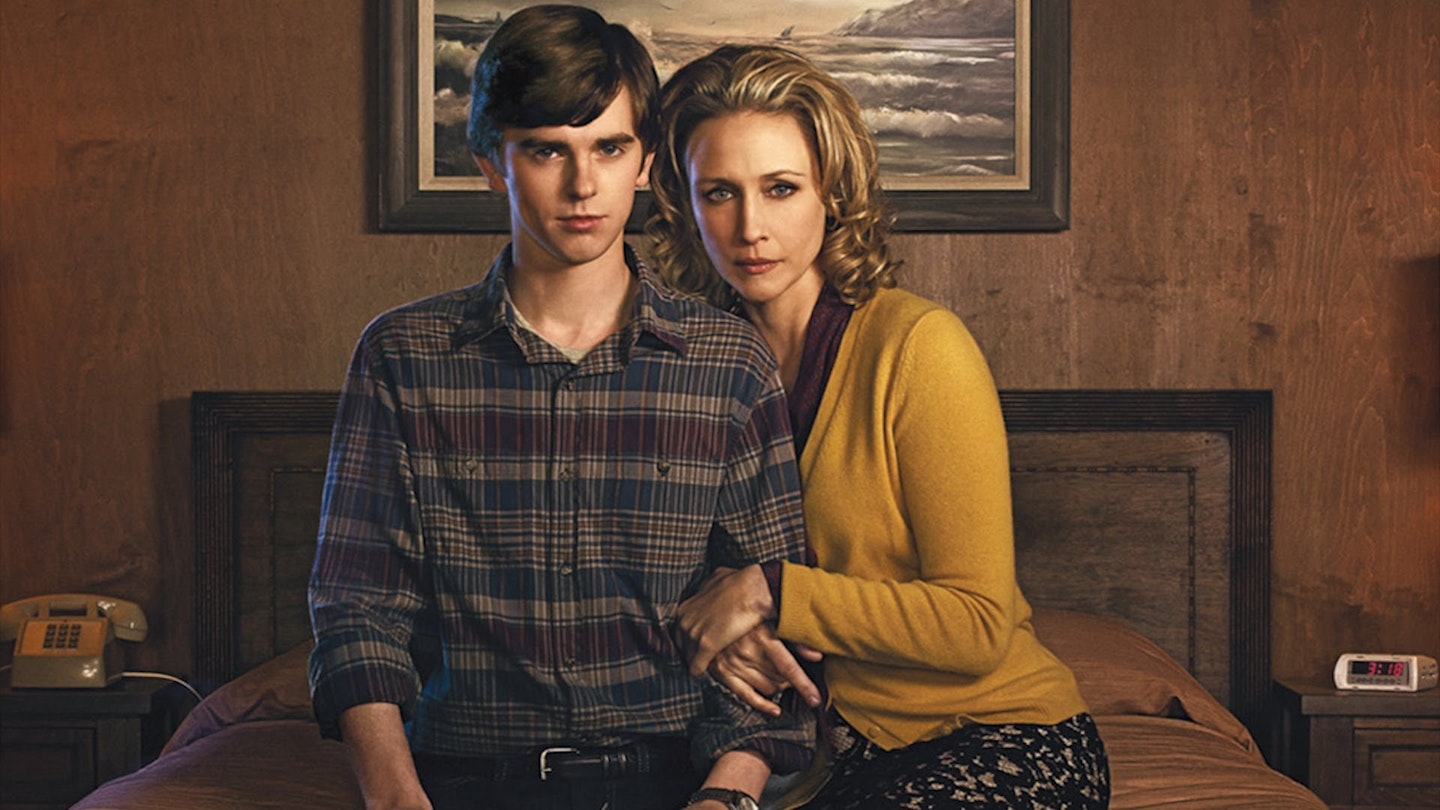
As you were developing the show, how much attention did you pay to the films?
We’ve only looked at it once, because we didn’t want to copy it. We didn’t want to be too inside of it. I can’t speak for Carlton, because we didn’t watch it together, but I know he watched it once, I watched it once, and I just watched it and absorbed the feeling of Norman Bates. Who he was as a person. That he was so likable, he wanted to please, that he was incredibly lonely. When you watch that movie, I have an instinct, I want to save him, and those were the things that I just carried in my heart and my brain then, when turning to creating the world with Carlton, to infuse those things into the world we were creating.
Did you ever see the sequel films?
You know, I tried watching the sequels right after I had agreed to do the show, and I had, honestly, a cold sweat panic watching them, because I was not into them. Truthfully, this was a scary job to take on, because there are so many ways it could be horrible! There are so many ways you could do it badly, or wrong, or it could be cheesy. It could be redundant. It could be trying to be the movie. Really, it was a scary thing to take on, and both Carlton and I felt that way, but at the end of the day, having the opportunity to use Psycho as a Trojan Horse, and tell the story about this codependent love relationship was too seductive to me.
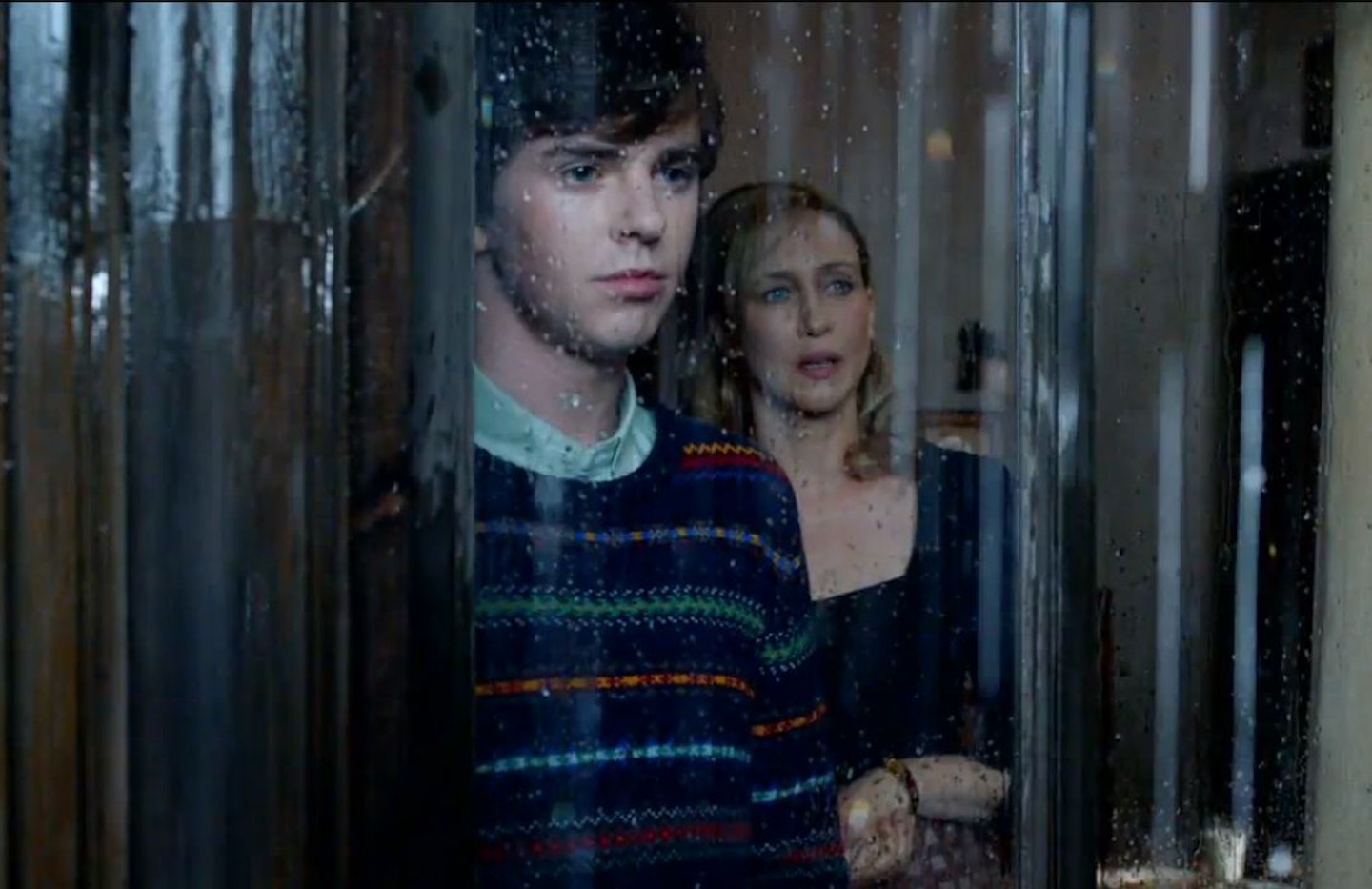
How significant in the course of the series was casting Vera Farmiga and Freddie Highmore?
They are the show! This would not be the same show, in any way, shape, or form, without Vera and Freddie. For one thing, just remarkable ability — amazing, amazing actors. Combine that with the fact they just had fucking chemistry. From day one, it was completely apparent that they had a chemistry, and those are just magical things that happen; those are “X” factors that happen when you’re putting a show together that you can’t count on, and you can’t control, and that’s just pure luck when you get that kind of chemistry!
They completely informed it, and then, also starting to understand how funny they both are. There was definitely some black humor in the pilot, but we all mined the humor in the show, because it delighted us so much. It really became very collaborative, because we knew what they were capable of doing, and we could put it into the scripts.
How would you chart the show season to season in terms of its evolution?
Well, the first season was very much about setting up, and the interesting thing about the first season was that A&E had ordered six scripts, but had not green-lit it. I think we had the first three scripts, and they green-lit off of that. We had mapped out where we were ending six, and it was like a season finale. Then they wanted ten! So we were thinking, “Well, we don’t want to dismantle what we have, because it’s really, really good!”, but then we had to basically graft on four more episodes, but also weave them in, in a way where it felt like they weren’t just grafted on, where it felt like an extension of the story we had been telling. That was a challenge, but it was also interesting. I personally feel like, in those four episodes, the show kind of found what it was long-term. Six, to me, feel a little more like a miniseries, and then the show really got grounded in those last four.
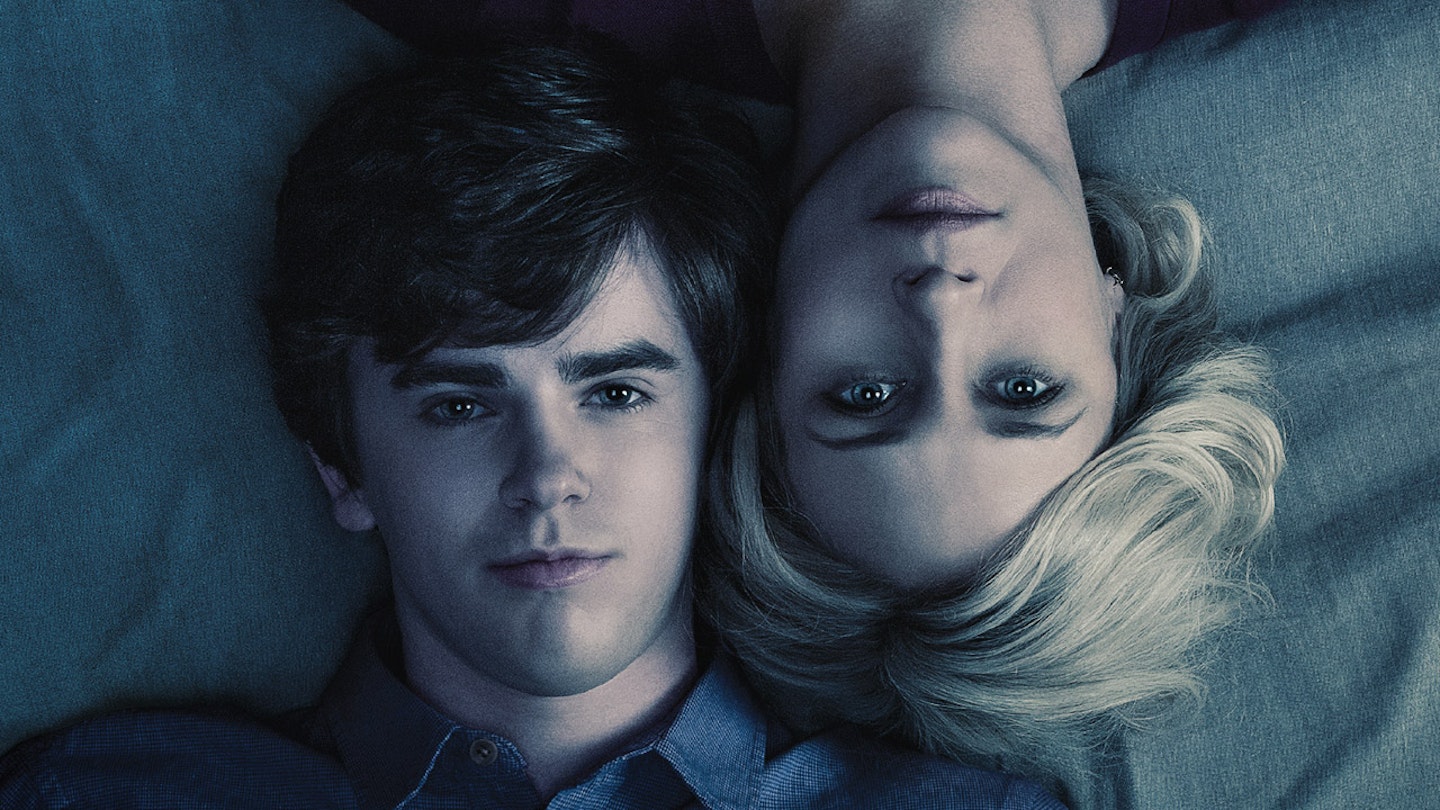
You know, the first season is about introduction, and setting up, and meeting these people, and starting to care for them, realizing how fucked up they are, realizing the odds against them, but really kind of being in love with them by the end of the season, and realizing what they were up against.
Season Two was very much about this idea of Norma almost getting what she wanted, and what she has wanted her whole life was just normalcy. To fit in somewhere, to be part of something. She grew up in a very chaotic, kind of violent household, isolated, and I think her longing was, “I just want a normal life,” and she believed, in going to White Pine Bay, she was going to have that with her son. That was really the arc of that season, was her kind of fitting in for the first time in her life, and then, at the same time, this rumbling underneath of the murder of Blair Watson, and was that connected to her son? Could she push that down? That’s too horrible to contemplate, that couldn’t possibly be true … That was just such a great stew for her, and then it kind of all collapses by the end. Then, by the end of that season, it’s the first time that Mother steps in and kind of takes over for him, in the sense that she saves him during the polygraph test. The whole season has aroused suspicions in Dylan and Romero, so it’s kind of got that rolling.
Then, the third season was very much about Norma feeling that she got close to getting what she wanted, but it kind of collapsed for her, so she is kind of letting go of that dream of normalcy, and she’s just like, “Fuck it! I’m going to fit into this place, and play with the big boys! If this guy thinks he’s got something on me, I’ve got something on him, and I’m going to get what I want!” It was a little bit of a graduation for her to a more sophisticated and cynical state of mind, which really isn’t her natural state, but that she had to get to the other side of. Then, for Norman, Season Three is very much about him starting to be aware of the split in him, that there’s something really wrong with him … Trying to get away from it, trying to get away from his mother. Just trying to get away from it, and ultimately not being able to, and ultimately killing Bradley, which was a horrible thing, given that she was someone who meant a lot to him, not knowing that he killed her, but that was like sort of a baptism into real darkness, I think, for the show.
Season Four was just this beautiful season about Norma at her lowest, which was, “I have to admit, my son has a mental illness, and he’s dangerous. I have to get him help,” and that means separating from him. As I said, the codependent thing is … The reason it has such a power is that you emotionally feel like you are going to die without that person. It was a huge sacrifice for her to be able to put him in this mental institution. But the beautiful thing that came out of that was that she suddenly was open to love; there was space in her life for the first time to let love in, and her relationship with Romero, and the fake marriage for the insurance, and all that, put him right in front of her, and she was able to let him in for the first time, and he, being the most guarded man in the world, let his guard down for the first time. It was just this beautiful little love story that happens in Season Four, where she actually does get what she wants. She didn’t see it coming, but she gets it. She finds happiness.
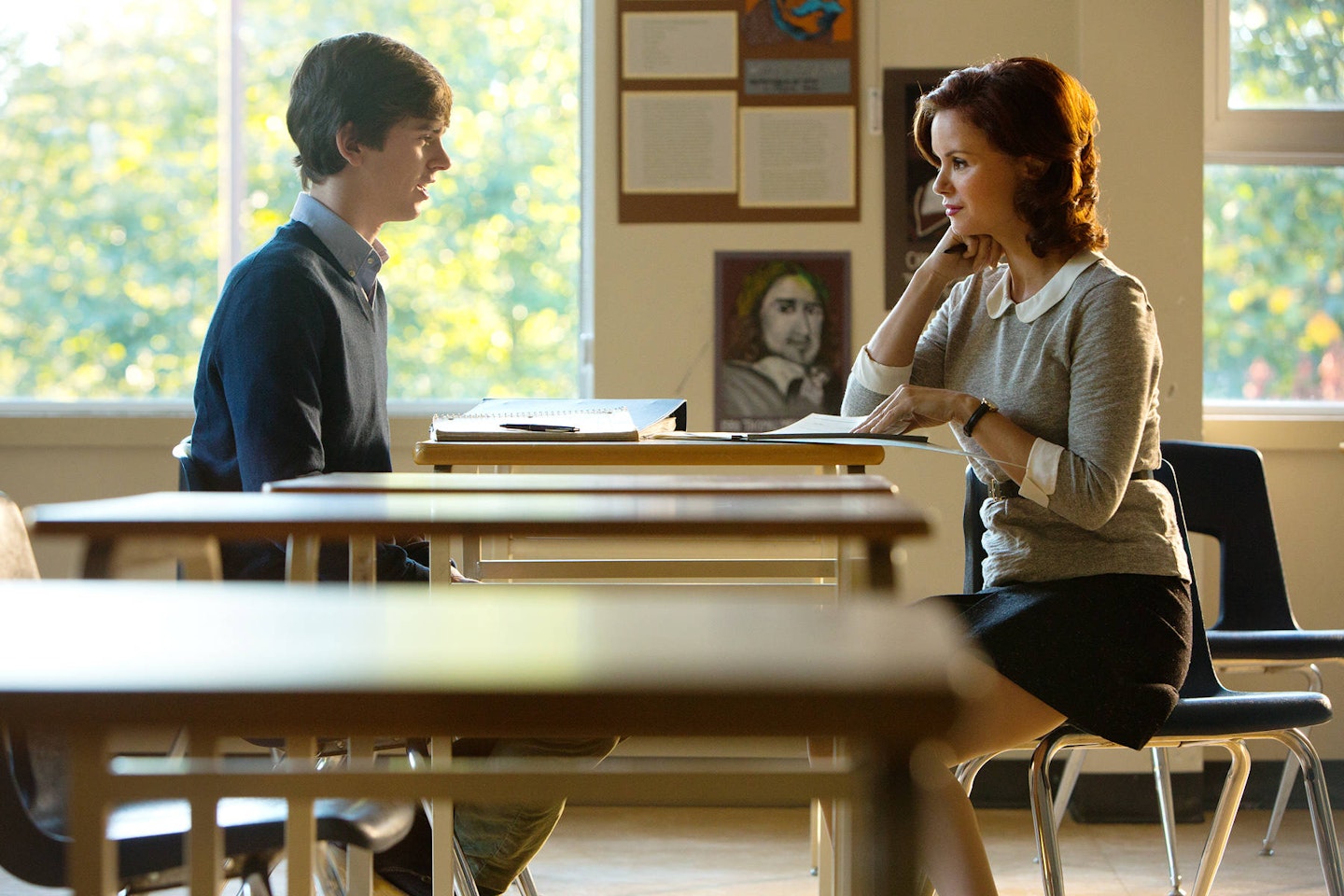
Norman, meanwhile, is very much searching for the truth. Is really trying to figure out what is wrong with him. Starting to understand, through the help of his doctor, played by Damon Gupton, who is amazing, the deep, deep, deep underbelly and roots of some of this that came from his childhood. Of course, that all explodes on them when Norman finds out his mom is married to Romero. It’s like Norman’s brain shuts down at that point, and all he wants to do is get out of the mental institution and go home.
Then, once home, it’s like a pot that’s boiling; it’s like, you have these three people that don’t all fit in the picture, and who’s going to get taken out of it? It’s Romero, and Norman, and Norma, and ultimately it has the tragic death of Norma, when Norman realizes he doesn’t understand how to ever make it work. How, for him and his mom to be together, and have what they have, for her to have normalcy, for him to ever be normal, he knows he’s dangerous … It seems like, he knows that, for his mother, losing him would kill her, so he feels, “The best thing I can do is just take us both out, and we can just be together in whatever is in the afterworld…”
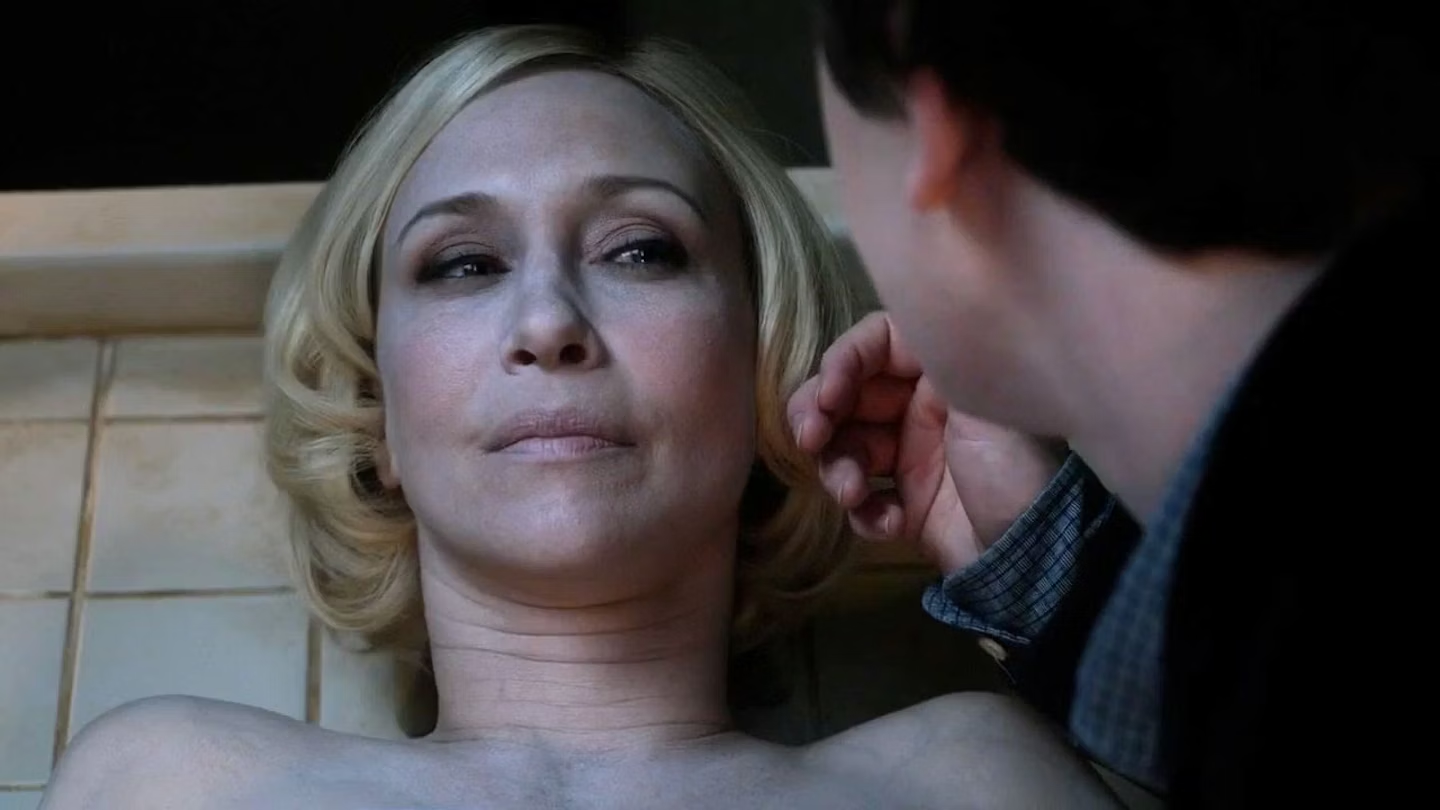
Then, we had to basically reinvent the series in the last episode, which was about Norman after the death of his mom, which was one of my favorite episodes, and I think Freddie is just so amazing in it. Tucker Gates did an amazing job directing it. It really resets the show. We’re living inside the head of a crazy person, and we don’t know this is going to work out for him, but we’re on the ride with him, because we care about him. He’s endearing. He’s a kid who has been left alone.
The fifth season is the continuation of that. It’s the continuation of what we set up at the end of Season Four, and will lead us to cathartic conclusions.
From the film we know when and how Norman encounters Marion Crane, but you decided to have her and Sam Loomis become a part of the show now. Why was that?
It felt really right to arrive at Psycho in the last season, because we’re doing the prequel to Psycho. So you look at different versions of how you can arrive there, and it’s, like, “Well, do you end the series there, where Psycho starts?” That seemed really unsatisfying, so you just start thinking about different permutations of how to engrain that. It just felt like it should be part of the storytelling of the last season, and that it should weave into what we have created in Bates Motel World.
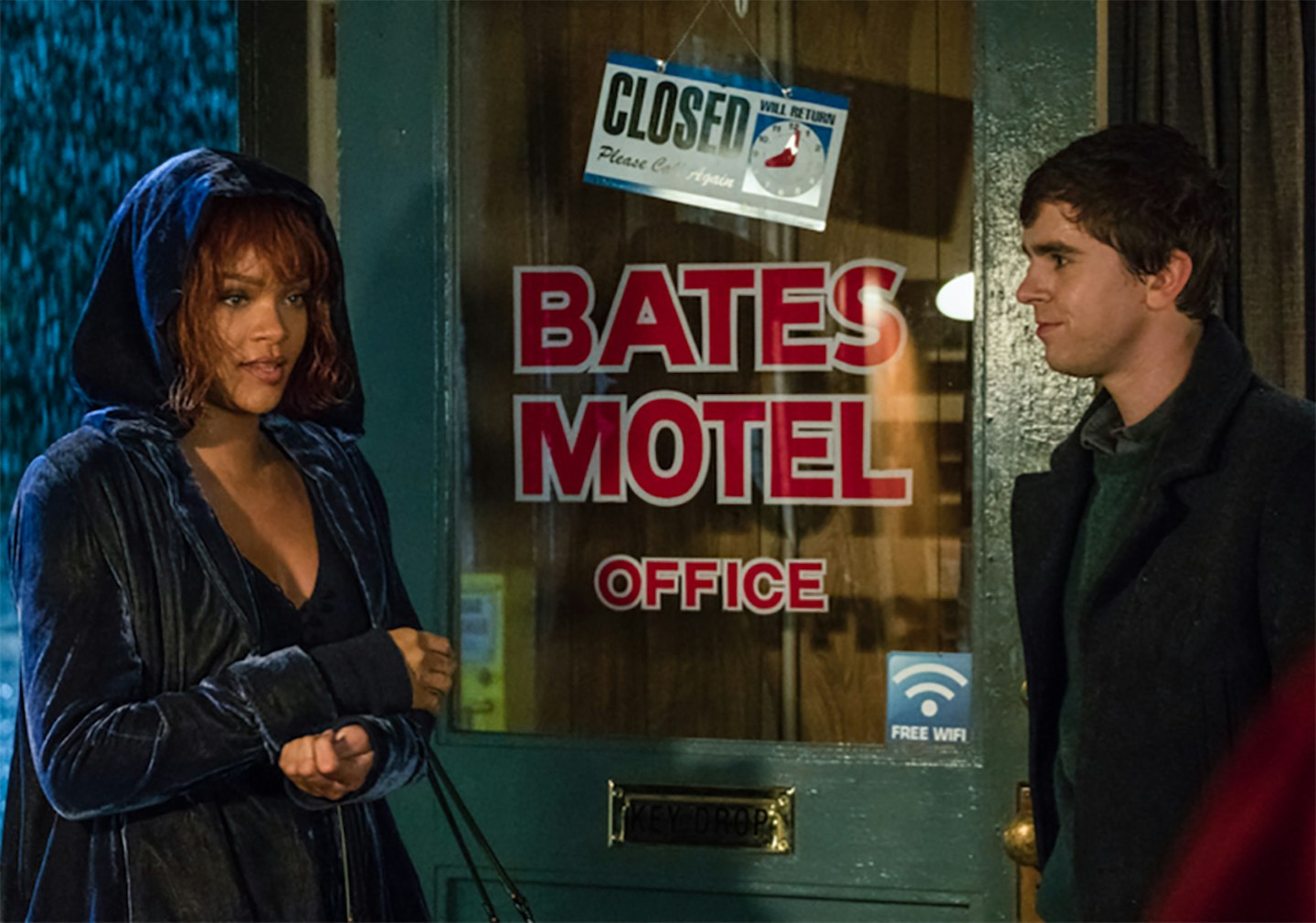
I describe it as, it’s not like Bates Motel is going to Psycho, it’s like Psycho is being pulled into Bates Motel. It really is like a collision of these two things, and we wanted it to have a point, and have a meaning within the arcs we’ve set up in Bates Motel. We worked really hard to do that, and we feel like it really delivers.
You've mentioned sympathy you feel for Norman Bates. What is it about that character — whether we're talking Freddie Highmore's portrayal or Anthony Perkins' — that engenders such sympathy?
He’s innocent. He doesn’t know he’s doing it. He is a victim of his mother, that lives in his head, especially the guy in the movie … He’s very much a victim of a domineering mother that lives in his head, who was his mother in real life. You basically feel his pain, and you have compassion and empathy for him, and it comes through in Anthony Perkins’ performance, that he’s just this lost child, who, in his heart, is a good boy. You feel for him, and you want to save him.
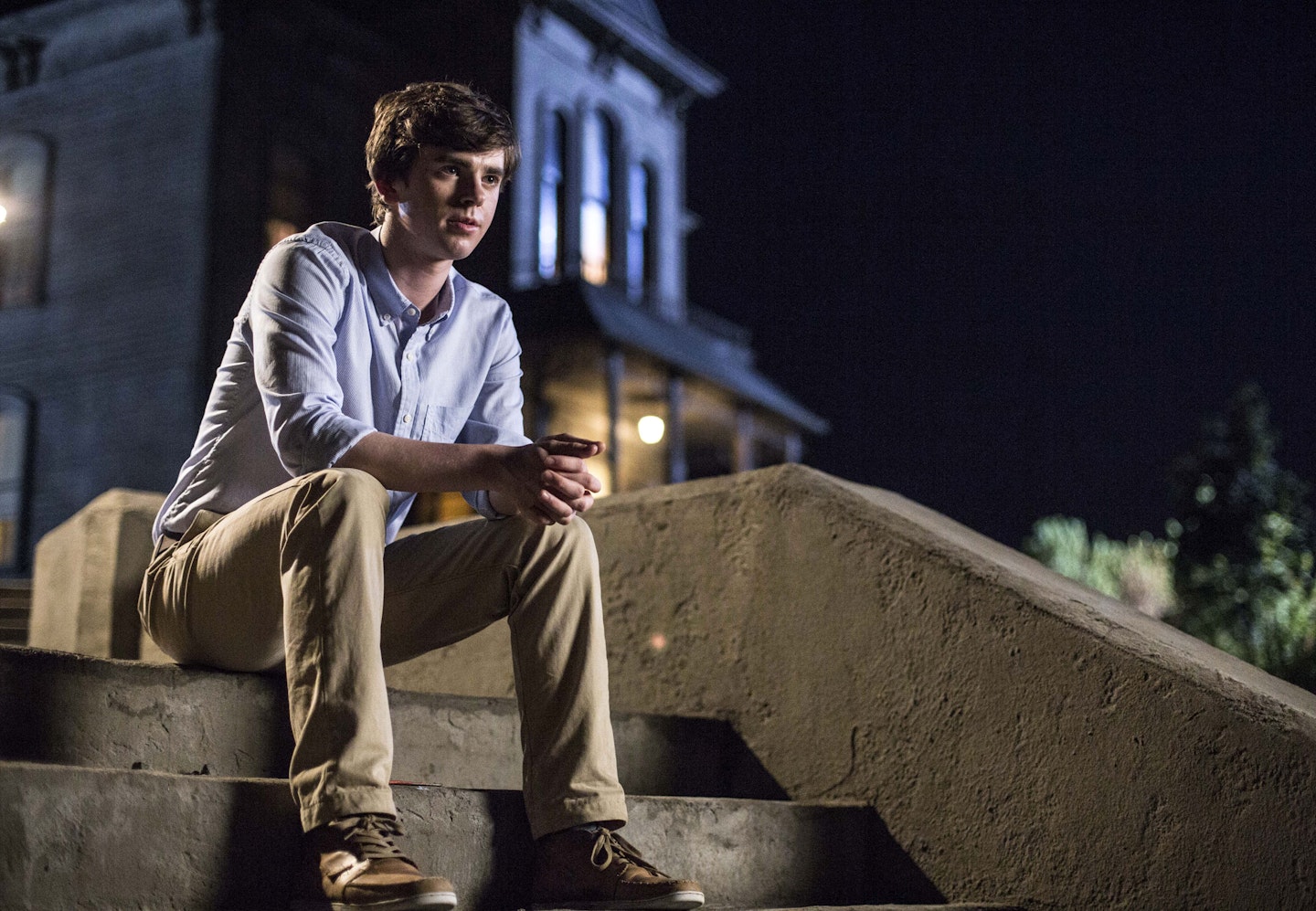
When they made Psycho II, there was such outcry: “How dare you make a sequel to Psycho?” “Oh, my God! What are you doing, what are you doing?” So for you, in the beginning, and coming out the other end now, how much trepidation was there tackling this material, and how freeing is it, five years later, having done it?
Huge trepidation! Really, Carlton and I were both very, very nervous about taking it on, for just that reason. Psycho is a freaking classic, iconic film, and it is sort of audacious to say, “Oh, we’re going to make a TV show prequel to this!” We just both felt that there was something in it to mine that wasn’t necessarily in Psycho.
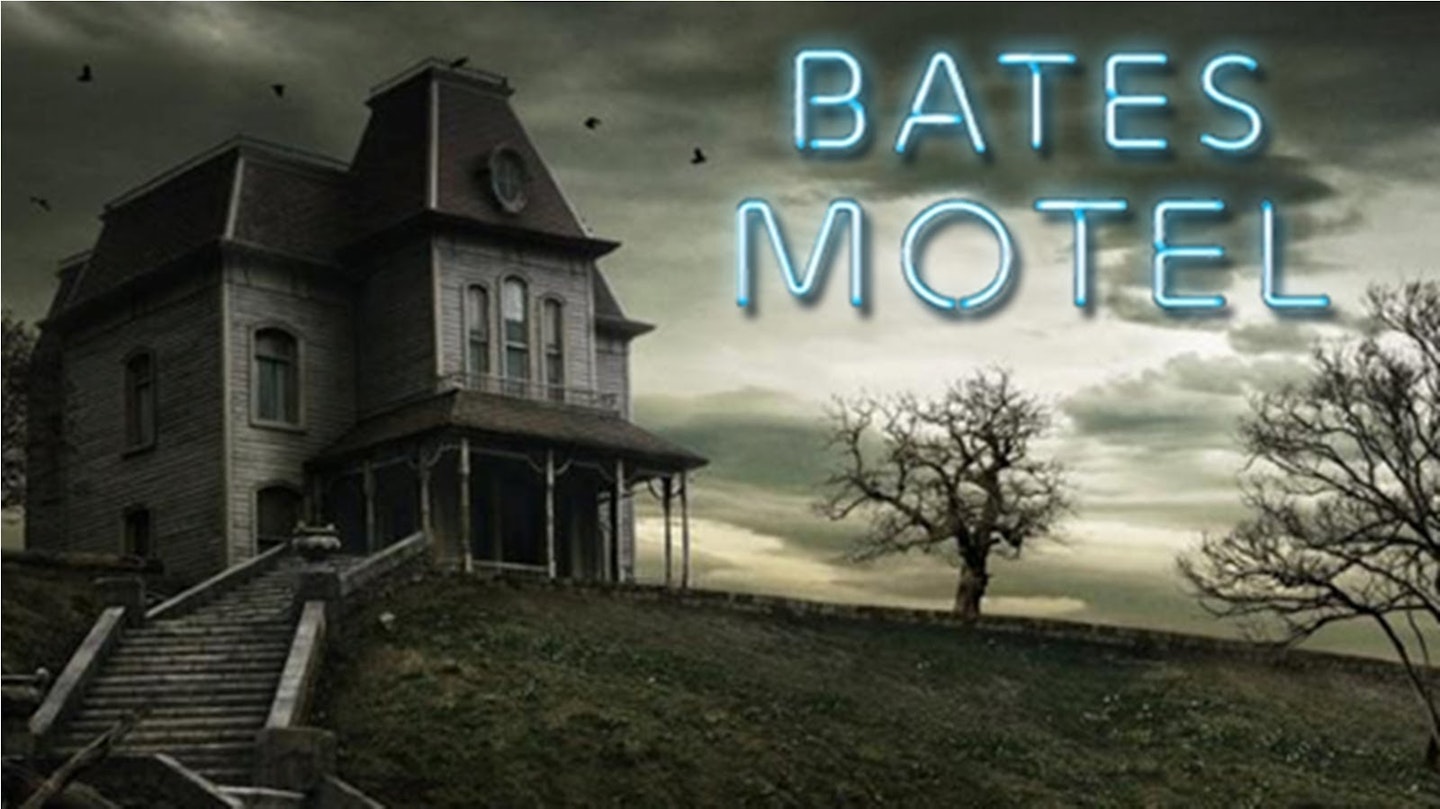
Psycho the film is very much about Hitchcock telling you where to look at what time, so there’s a lot of slight-of-hand in it, and it’s brilliantly done. The kind of interesting thing about Bates Motel that makes it an interesting companion to that is that all of our doors are open. We are showing you the inside; we’re showing the real day life of everything that’s happening, and what it looks like inside. You never really go inside the house in Psycho, you don’t know what those conversations with his mother look like. You don’t know what it looks like when he has to put on the wig and the dress, you know what I mean? That was always, personally to me, super-interesting … I wanted to know what that looked like! And to me, it also has humor in it, because it’s absurd.
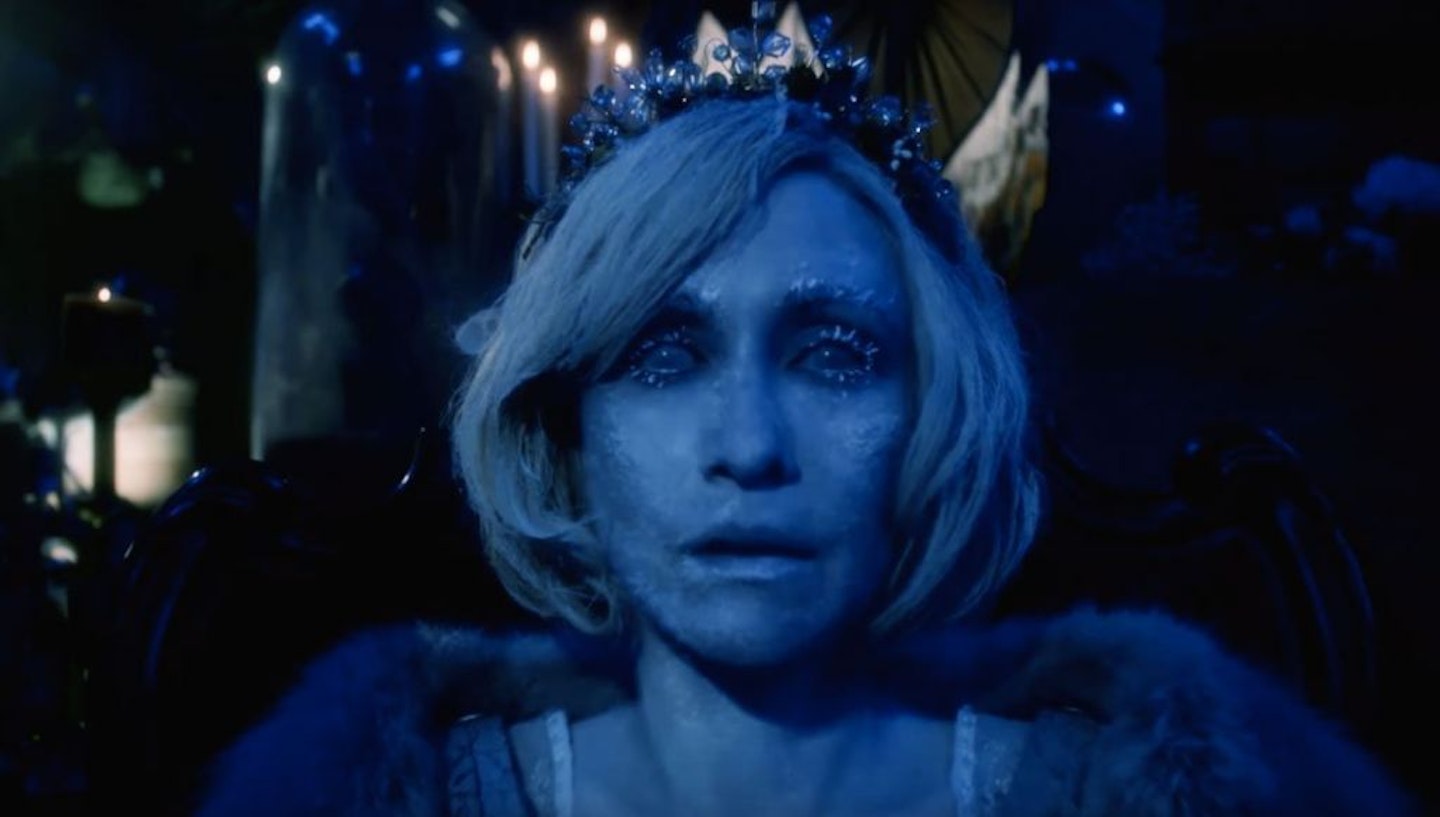
Bates Motel is really about opening up the world to an audience: “Here’s where these people came from, here’s what they’re made of emotionally, psychologically, and historically. Here’s what’s good about them, here’s what’s sad about them, here’s what’s lame about them, here’s what’s funny about them." It’s sort of the photographic opposite of what Psycho is, and I think that that’s kind of fun.
If you look at Norman Bates as a character, from Episode One to that final episode, what is the difference between the boy we meet at the start to the man we leave in the final episode?
Exhaustion. It means when you’ve lived through something traumatic and horrible for five years, it’s just emotional exhaustion. I think that is the difference. Other than that, he is pretty consistently the same person. He’s a nice guy that wanted things to work out, that loved his mother, that had lived a scary and damaging life in childhood, and just wanted — like his mother — to just have a normal, happy life, and run a motel. He still is that guy; that never changes for him. So much does he want to be that guy that he creates a reality in his head. It’s not like he develops into a horrible, dark character; he doesn’t. He’s very much the same, but he has fended off these attacks that came at him through the mental illness, through some of the inadvertent dysfunction of his mother, well-meaning though she is; through bad luck with the town they moved into … All those things.
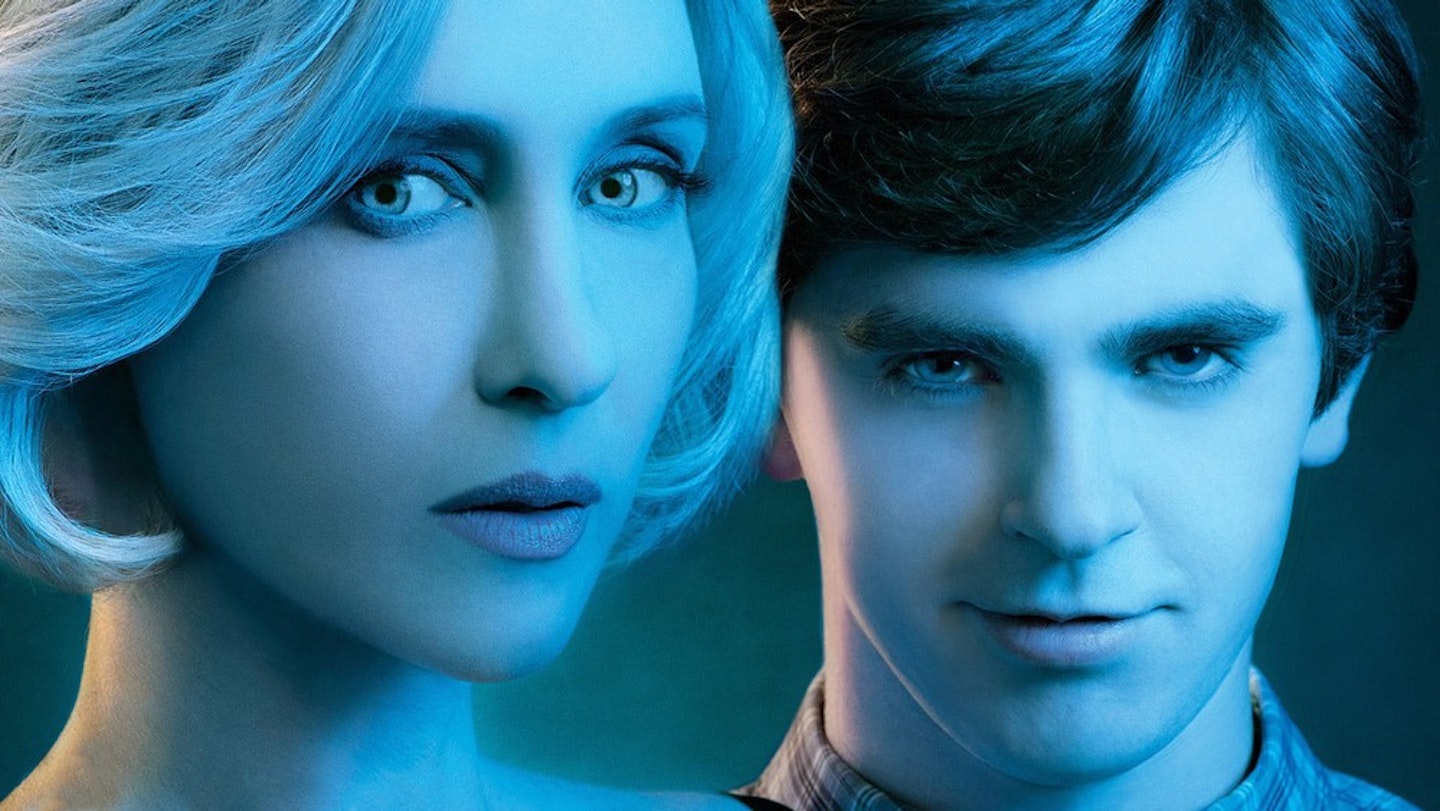
These rockets have been coming at him for five years, and that’s what I mean by exhaustion. How you feel, if you’ve ever lived through somebody being in the hospital for six months, and dying … It’s like, you’re still the same person at the end of it, but you’ve been laid waste a little bit.
Bates Motel airs on A&E in America and Universal Channel in the UK
